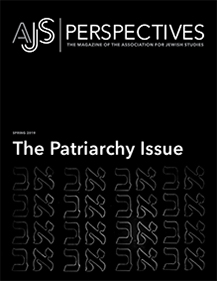
Male scholarship has predominated in medieval Jewish intellectual history, the field in which I am pursuing a doctorate. Though women are gaining more positions in the field of Medieval Jewish Studies, and thus we can look forward to increasing women’s scholarship in this area, there is still a gap that needs closing. I believe this is due to the discrepancies in women’s and men’s Torah study still extant in Orthodox Judaism. Fluency in Talmud, Bible, Jewish law, and their medieval commentaries is required in order to study medieval Jewish intellectual history, and this fluency is usually obtained in the yeshiva system, where, despite much progress in women’s Torah education, this study remains a primarily male pursuit. There is a “rabbinic knowledge gender gap,” and I think it can be closed in academic Jewish Studies in the following manner:
Unlike Bible, Second Temple Judaism, Talmud, Jewish History, Holocaust, and Israel Studies, there is a lack of academic study of the talmudic and halakhic commentaries and law codes of the medieval and early modern eras. Our understanding of this critically important literature would be greatly enhanced by applying academic approaches to its study. In addition, teaching this literature in the academic realm would provide greater access to women as well as those who do not have either an Orthodox or yeshiva background, as well as non-Jews. Practical ways to achieve this could be:
1. For a survey course on Ashkenazic medieval Jewish history, include short yet indicative examples of medieval rabbinic thought, in English translation: Rashi, Ibn Ezra, Rashbam, and Naḥmanides on the Bible; Rashi and Tosafot on a brief passage of Talmud; and possibly an excerpt from Maimonides' Mishneh Torah for contrast. This need not take more than a week or two of lecture, and Bible and Second Temple Judaism/Talmud could be prerequisite courses if desired by the instructor and/or the department.
2. A seminar on medieval Jewish talmudic commentary and law designed for upper-division undergraduate as well as graduate students. All primary sources would be in English translation.
3. A graduate seminar (yet open to upper-division undergraduate students with the requisite language skills) on medieval Jewish talmudic commentary and law, with primary sources studied in the original medieval Rabbinic Hebrew.
I look forward to medieval Jewish intellectual history becoming an integral part of the study of Judaism and Jewish history, either as its own independent field or as part of the study of medieval and early modern Judaism. Moreover, even for those seeking to study other aspects of Jewish history, medieval Jewish intellectual history plays an important role, such as the study of the status of Jewish women in Jewish law and the development of Jewish law and Jewish observance up until the present day; it also provides ample sources for comparative work with medieval Christian Studies. It’s a rich source of ore waiting to be mined.

